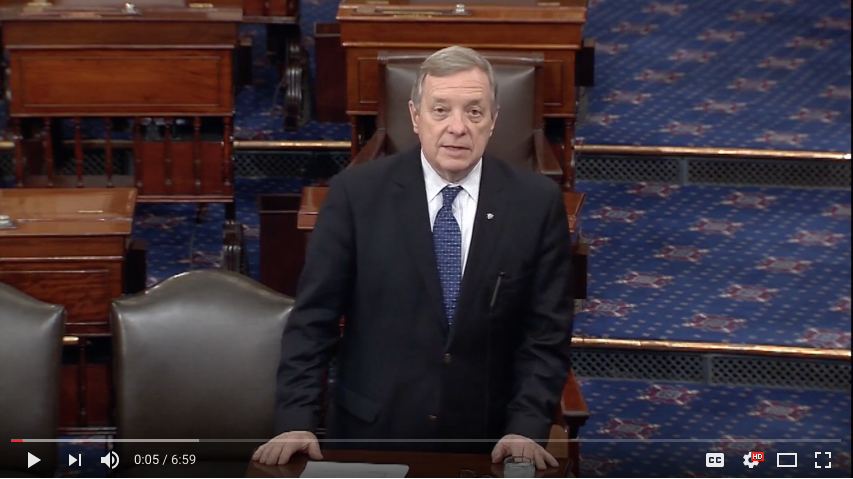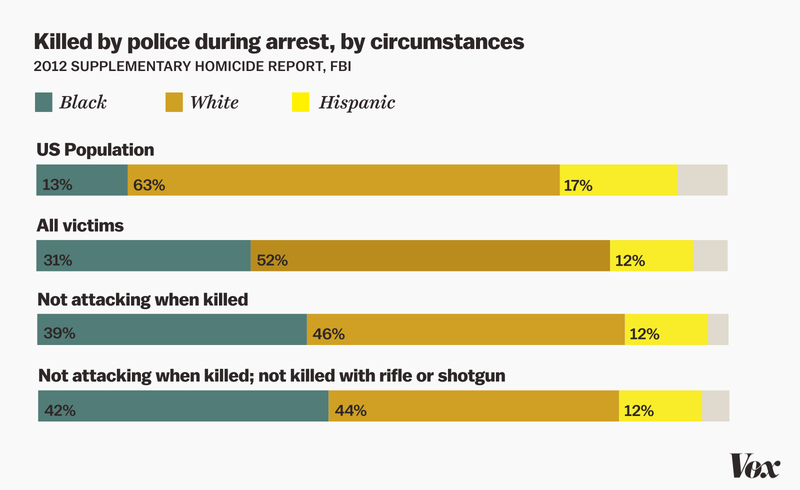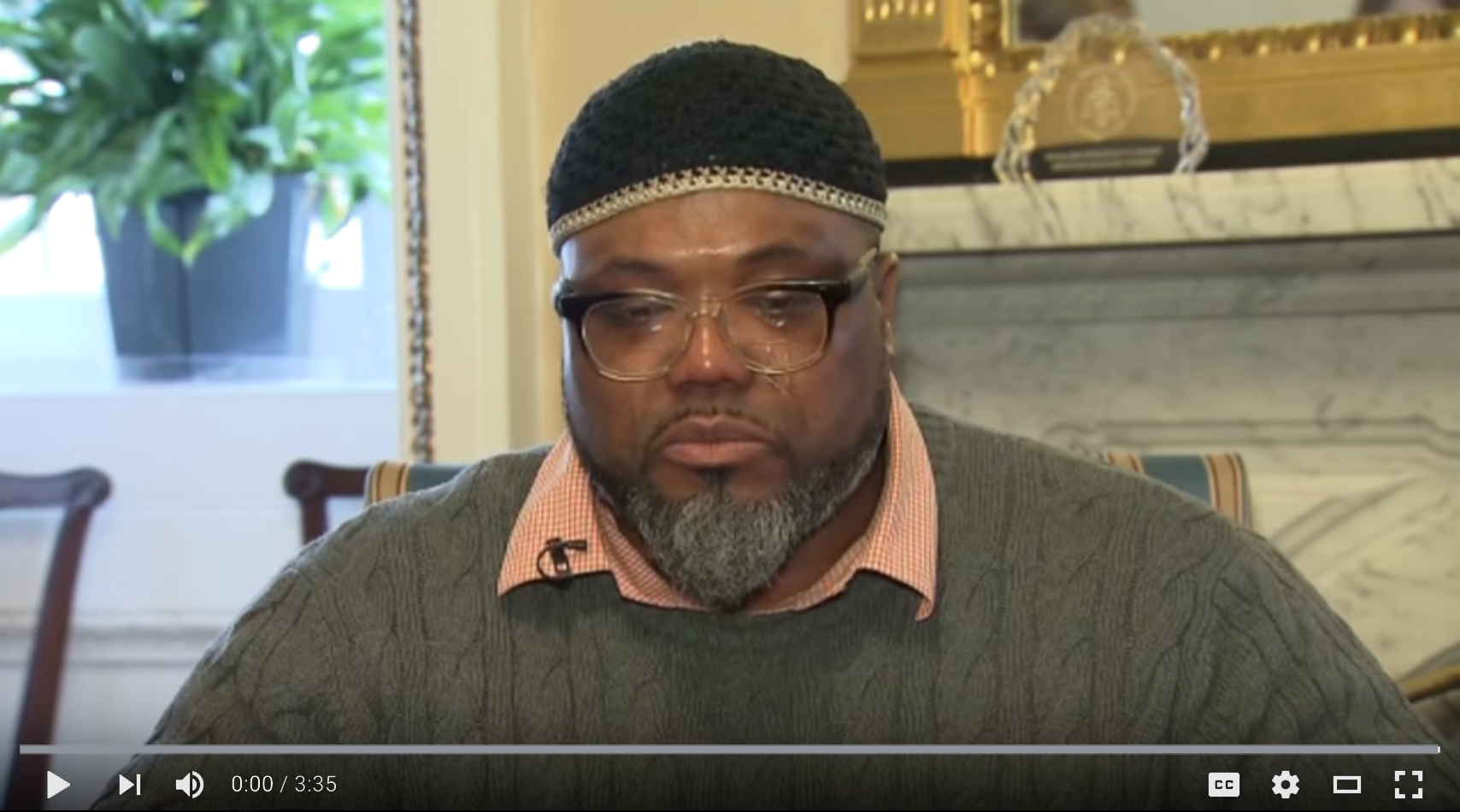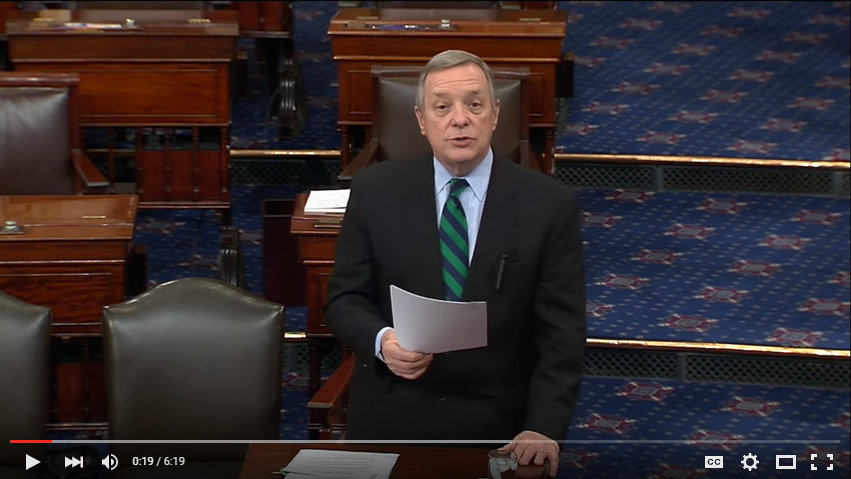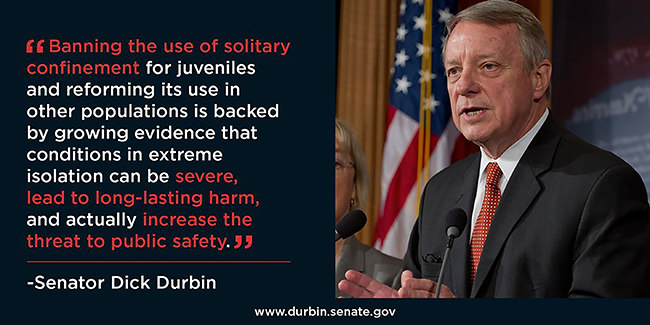Recording link of March for Our Lives Palatine below:
Topic: Indivisible Illinois Social Justice Alliance – Weekly Meeting
Date: Jul 31, 2021 11:46 AM Central Time (US and Canada)
Passcode: tpEr#dn5
_______________
Sean Casten: This Rep Says GOP Panic Over Critical Race Theory is Unpatriotic
_______________
EQIL and NWSOFA Social Justice Video
https://drive.google.com/file/d/1_b6xMa9uEyQ27yuD-6IM97BsMmPj-rVb/view?usp=sharing
____________________
The Sixth Dems held a town hall called Our Community, Stronger Together
We bought together a group of diverse leaders who shared their experiences. Viewers heard from leaders from different backgrounds share their stories and answer questions. These leaders work hard to build better communities and have made a tremendous positive impact.
You might think it’s easier not to talk about diversity. You might feel bruised and isolated from intense discussions. We understand. But the violent, hateful acts by some individuals who make headlines do not reflect who we are as a community. If they don’t reflect you, join us as we bring together friends and neighbors who recognize, celebrate and transcend differences. Diversity means different experiences create common bonds and common good. Join us as we celebrate those who build and strengthen our communities.
Panel:
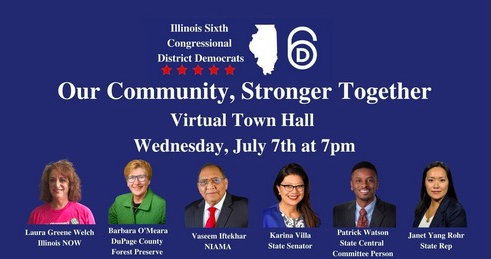
Karina Villa – State Senator
Patrick Watson – Democratic State Central Committeeperson
Vaseem Iftekhar – President Northern Illinois American Muslim Alliance
Barbara O’Meara – DuPage County Forest Preserve Commissioner
Laura Greene Welch – President Illinois National Organization of Women
Janet Yang Rohr – State Representative
Moderators:
Daniel Hebreard – DuPage County Forest Preserve President/ Sixth Dems Steering Committee member
Jennifer Zordani – Sixth Dems Steering Committee member
934 Views so far. We would like to partner with you all on future panels like this.
Video: https://fb.watch/v/1-ZeMyFEi/
___________________________
-
Cash bail bonds would be replaced by 2023 with a pretrial release system developed by Illinois courts.
-
The General Assembly would develop statewide use-of-force rules by 2023.
-
A Task Force on Constitutional Rights and Remedies would be created to address qualified immunity.
-
An overhaul of police certification would make it easier for the state to address who becomes an officer and whose certification is removed because of misconduct.
-
Body cameras would be required for all police officers by 2025, but a penalty cutting state funding for non complying departments was removed from the bill.
-
Suspects must be allowed to make three phone calls within three hours of being taken into police custody
____________________
Community leaders calling on Arlington Heights to revamp its diversity efforts
https://www.dailyherald.com/news/20210115/community-leaders-calling-on-arlington-heights-to-revamp-its-diversity-efforts?fbclid=IwAR2GponL7HGJPFEq6EsAca9Cs4ttimXbkYAdxkOcOQFXg6EpLfjbBKjygtQ
______________________
Conversation Z Podcast – Season 1: 2020
____________________
The truth in Black and white: An apology from The Kansas City Star
____________________
BREAKING: White Nationalist Domestic Terrorism NOW PLAYING ACROSS AMERICA
____________
What You Need To Know About The 2020 Census
_____________
Potential Shifts in Political Power after the 2020 Census
_____________
Elena Kagan Asked for Proof that Gerrymandering Harms Both Political Parties. Here It Is.
______________
______________
Redistricting Action Kit – LWV
_____________
______________
Michelle Obama and Colin Kaepernick’s Know Your Rights Camp were among 12 recipients of prestigious annual NEA Human and Civil Rights Awards
Minneapolis – July 01, 2018 –
First Lady Michelle Obama and the Know Your Rights Camp, founded by professional quarterback and racial and social justice advocate Colin Kaepernick, were among the dozen recipients of the prestigious National Education Association Human and Civil Rights Awards.
The merger of the National Education Association and the American Teachers Association in 1966 produced the annual NEA Human and Civil Rights Awards. Since the merger, NEA has recognized and honored educators, individuals, community partners, and organizations that are advancing the mantle for human and civil rights.
“The human and civil rights champions we honor tonight are the epitome of the fierce urgency of now that Dr. Martin Luther King, Jr., spoke about in his ‘I have a Dream speech,’” said NEA President Lily Eskelsen García. “Through their deeds and actions, they have demonstrated remarkable courage and conviction to stand up for racial and social justice. They have shown an unrelenting resolve and ferocity to make a real difference for public education, students and our nation’s future. They are shining examples of social justice activism, fighting against injustices every day, and making sure that our great nation lives up to its promise.”
To view the bios and accomplishments of the 2018 NEA Human and Civil Rights Awards recipients, please click here.
North Carolina Educator Rodney Ellis
NEA posthumously recognized North Carolina educator Rodney Ellis with its César Chávez Accion Y Compromiso Human and Civil Rights Award for opening doors for his students and making sure schools have the resources they deserve no matter their ZIP code. Watch a tribute video of Rodney Ellis here.
The Asian Pacific American Labor Alliance (APALA)
NEA recognized APALA with its Ellison S. Onizuka Memorial Award for its work to advance workers’ rights. See a video of APALA in action here.
Ohio Educator Lynette Jimenez
Because of her unbending commitment to her students in Twinsburg, Ohio, and to students a world away in El Salvador, NEA bestowed upon Lynette Jimenez its highest honor, the George I. Sanchez Award. Watch a video of Jimenez in action here.
California Educator Dr. Cecil Canton
NEA recognized Dr. Cecil Canton with its H. Councill Trenholm Memorial Award for working to advance racial and social justice. Watch a video of Canton in action here.
Dr. L.G. Bunch III
NEA recognized Founding Director of the Smithsonian National Museum of African American History and Culture, Dr. L.G. Bunch III, for creating a place for America to honor and celebrate the African-American story with its Martin Luther King, Jr., Memorial Award. See a video of Bunch in action here.
Michelle Obama
NEA honored Michelle Obama with its Mary Hatwood Futrell Award for transforming and redefining the role of First Lady of the United States by intentionally focusing her attention on advancing opportunities for women and girls. See a video of Michelle Obama in action here.
Michael Harman of Utah
NEA bestowed upon Michael Harman its Reg Weaver Human and Civil Rights Award for working to end homelessness. To see Harman in action, click here.
Jitu Brown of Illinois
NEA honored community activist Jitu Brown with its Rosa Parks Memorial Award for demanding accountability from elected officials and seeking justice for the voiceless. To see Jitu Brown in action, click here.
The Milwaukee Teachers Education Association
NEA honored the Milwaukee Teachers Education Association with its Rosena J. Willis Memorial Award for standing up for students and educators amidst a barrage of political attacks aimed at silencing their voices. To see MTEA in action, click here.
Vermont’s Muslim Girls Making Change
NEA recognized Vermont’s Muslim Girls Making Change with its SuAnne Big Crow Memorial Award for confronting racism and Islamophobia. See a video of MGMC in action here.
LGBTQ activist Chris Sgro
NEA honored Chris Sgro for his tireless dedication and many years of work to expand the rights of LGBTQ people with its 2018 Virginia Uribe Award for Creative Leadership in Human Rights. Watch a video of Sgro in action here.
Colin Kaepernick’s Know Your Rights Camp
Former San Francisco 49er quarterback Colin Kaepernick received NEA’s highest honor, the NEA President’s Award, for his work to fight racial oppression through education and social justice activism with his Know Your Rights Camp.
Follow the conversation on Twitter #NEARA2018 #EdJustice2018 @NEAMedia
###
The National Education Association is the nation’s largest professional employee organization, representing more than 3 million elementary and secondary teachers, higher education faculty, education support professionals, school administrators, retired educators, and students preparing to become teachers.
CONTACT: Miguel A. Gonzalez, NEA Communications, 202-822-7823, mgonzalez@nea.org
_________
A black Yale graduate student took a nap in her dorm’s common room. So a white student called police
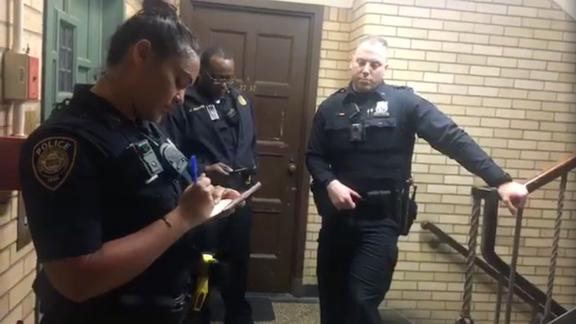
(CNN) — A white person voices suspicions about an innocuous person of color. Police are summoned. And the encounter is posted on social media, sparking outrage about racial profiling.
In what is becoming an all-too familiar episode, a black Yale University graduate student was interrogated by campus police officers early Tuesday morning after a white student found her sleeping in a common room of their dorm and called police.
The black student, Lolade Siyonbola, posted two videos of the encounter to Facebook, where they have been widely viewed and drawn thousands of comments.
“I deserve to be here. I pay tuition like everybody else,” an annoyed Siyonbola told responding officers in one video after they asked for her ID. “I’m not going to justify my existence here.”
The incident is one of several in recent weeks in which police have been called on people of color for seemingly harmless acts. In one of the most recent, three black women were detained while leaving their California Airbnb after a neighbor called police, thinking they were burglars. Last month two black men were arrested at a Starbucks in Philadelphia after a manager called 911 on them because they didn’t order anything.
What happened at Yale
According to Siyonbola, she was working on a paper in the Hall of Graduate Studies when she fell asleep in a common room. Another female student came in, turned on the lights and told her, “You’re not supposed to be sleeping here. I’m going to call the police.”
Siyonbola pulled out her phone and recorded 54 seconds of a hallway encounter with the unidentified student, who told her, “I have every right to call the police. You cannot sleep in that room.”
After two white police officers arrived and began questioning her in a stairwell, Siyonbola posted 17 minutes of their encounter to Facebook Live.
When Siyonbola asked them about the complaint, one officer said, “She called us (and) said there’s somebody who appeared they weren’t … where they were supposed to be.”
The 34-year-old grad student in African Studies unlocked her dorm-room door in front of police to show that she lived there, but they still asked for her ID. “We’re in a Yale building and we need to make sure that you belong here,” the other officer told her.
After some hesitation, Siyonbola handed her ID over. “I really don’t know if there’s a justification for you actually being in the building,” she told the officers, saying she needed to get back to working on her paper.
Eventually two more officers arrived. After some confusion about Siyonbola’s ID — her name was apparently misspelled in a student database — the police told her she was free to go.
How people are reacting
Siyonbola’s video of the episode, posted at 1:50 a.m., has more than 480,000 views, 7,500 shares and 12,000 comments, many of them protesting what people feel was a racist assumption by the white student and harassment of Siyonbola by the campus police.
“This sorta incident breaks my heart everytime…” wrote one man. “Why do white folks always call police on black folks all the time why?!!!”

This female student called campus police about Siyonbola.
Graduate School of Arts and Sciences Dean Lynn Cooley sent an email to her grad students Tuesday evening emphasizing the importance of inclusivity and inviting them to share their comments about the incident.
“Incidents like that of last night remind us of the continued work needed to make Yale a truly inclusive place,” Cooley wrote. “I am committed to redoubling our efforts to build a supportive community in which all graduate students are empowered in their intellectual pursuits and professional goals within a welcoming environment. An essential part of that effort must be a commitment to mutual respect and an open dialog.”
Yale Police Chief Ronnell Higgins did not respond Wednesday to a request for comment. But Yale spokeswoman Karen Peart told CNN, “We believe the Yale police who responded followed procedures.”
University officials will review the officers’ response as they do with every incident, she said.
“Our officers are professionals who take great pride in working for Yale,” she added. “They are trained on unconscious bias, de-escalation techniques, and problem solving, and seek to treat each individual with respect.”
Siyonbola also did not respond to a request for comment. But in a Facebook post Tuesday afternoon she said, “Grateful for all the love, kind words and prayers, your support has been overwhelming. Black Yale community is beyond incredible and is taking good care of me. I know this incident is a drop in the bucket of trauma Black folk have endured since Day 1 America, and you all have stories. Share below if you feel led.”
CNN’s AnneClaire Stapleton contributed to this report.
_________
An officer’s response to a pregnant woman was ‘demeaning and offensive.’ Why her race matters.
| Perspective
 Thousands marched in December 2014 to put an end to police brutality. (Marvin Joseph/The Washington Post)
Thousands marched in December 2014 to put an end to police brutality. (Marvin Joseph/The Washington Post)It seemed a reasonable request.
A woman who was nearly nine months pregnant didn’t want to be late for a doctor’s appointment at a hospital in Northwest Washington.
She told this to the D.C. police officer who stood near her car. He had stopped the vehicle after he noticed the tint of its windows. They seemed too dark. Then, when he got closer, he saw that the woman’s husband, who was about to get out of the car, wasn’t wearing a seat belt. The two men were discussing the seat belt violation when the couple made the request:
Could the woman drive on to her appointment at the hospital while the man stayed behind and received the ticket?
The officer’s answer:
She could get out of the car and walk.
And just like that, on a November morning on a street in the nation’s capital, a mother-to-be had her Starbucks moment — a slap-in-the-face reminder that a line had been drawn between who deserves respect and who doesn’t.
The two African American men who were arrested for sitting without ordering at a Philadelphia Starbucks reached a settlement last week with the city for a symbolic $1 and a promise that the government would fund a $200,000 program to help young entrepreneurs. The agreement came after a video of the arrest went viral, sparking protests and a national conversation about racial profiling.
Related: [Two black men arrested at Starbucks settle with Philadelphia for $1 each]
But what if there had been no video, no proof that the men who showed up for a business meeting left in handcuffs before being detained for nearly nine hours? Would everyone who expressed outrage have felt the same way if they hadn’t seen for themselves how easily injustice plays out in the most normal of settings under the most casual of circumstances?
It’s easy to rally against the explosive, and sometimes deadly, clashes between police officers and people of color. No one should get shot eight times in their relative’s backyard for holding a cellphone.
But much more concerning — and where we have failed miserably in our desire to counterattack rather than listen — are the many unseen ugly encounters that don’t lead to protests or public apologies. No one is going to start a march if a police officer curses at a mother in front of her children, but in that moment, even if bones aren’t broken, something is shattered.
The most disturbing part is our collective culpability in this. We have, for the most part, accepted with shrugs that these incidents happen more to some groups than to others.
Ask yourself this. The race of the pregnant woman is not mentioned above. Would it surprise you if she were white?
What if she were black, or Hispanic, or South Asian?
Her encounter with police was not captured on video by a bystander. There’s no hashtag to express outrage on her behalf. Her name has not even been made public.
But a detailed account of the encounter can be found on the website of the D.C. Office of Police Complaints, which posts decisions from lawyers who review evidence, including body camera footage, before deciding whether the complaints have merit. The lawyer assigned to the pregnant woman’s case found that the officer used “demeaning and offensive” language and harassed her. The officer not only gave her husband a $50 ticket for the seat belt violation but also slapped the woman with a $1,000 ticket for an unlawful window tint. The penalty should have been a $50 citation, and he should have tested the windows. He didn’t.
The woman’s race is not listed in the complaint. But I know it (and will tell you later) because I requested it. I also asked about the race of a young man mentioned in a complaint that details what happened early one evening at a park in Northeast Washington.
The young man was sitting on a picnic table, wearing shorts, a T-shirt and a backpack slung over his shoulders. A playground was nearby. So were young children. A police car drove by, and the young man gazed at it too long. An officer said that caught his attention, as did an “L-shaped bulge” in the backpack that he claimed to see from the car. The officer approached the young man and asked whether he could search the bag. The young man said there was nothing in it and denied the search request. The officer told him he was going to pat down the bag. The young man again said no and pulled away. The officer patted it down anyway.
No weapons were found. No one was hurt. But something was broken.
Related: [‘It made me hate the police’: Ugly encounters fuel loss of trust, costly payouts]
The lawyer who reviewed the case for the complaints office concluded that the young man posed no danger to himself or anyone else and that the officer did not have enough grounds to conduct a stop and frisk. He needed more than a “vague hunch.”
“To decide otherwise means that every individual in a high crime area and wearing a backpack would be subject to being stopped and frisked,” he wrote.
Law enforcement officers have incredibly high-stress jobs and sprint toward dangerous situations that most people would run from. They deserve our respect and even the benefit of the doubt when the circumstances surrounding their actions are unclear. But a person just has to look at the complaints in the District — the majority of which are filed each year by black men and women — to see that trust in the police is often lost in the most mundane encounters. These are not high-stress, high-stake moments. These are situations in which officers hold all the power and choose how much respect and consideration to give a person.
In another complaint, a government worker was on his way to play basketball when officers stopped his car, alleging he failed to signal a turn. They asked for permission to search his vehicle, and he said no. So they towed it and told him to walk home.
Want to guess his race?
The D.C. police department is well aware it needs to work on these tensions. The department recently announced that officers will study race theory and visit the National Museum of African American History and Culture as part of a training program that aims to teach them about the black experience. Police Chief Peter Newsham said he hopes all sworn and civilian members will receive the training by the end of the year.
That’s a smart step. We should all learn more about one another. But if police officers are serious about showing everyone respect — and the department requires them to do so — they need to try harder to see the situation from the other side. If they need help, they can try asking themselves this: “What if that were my . . .”
What if that were my pregnant wife who was late for an appointment?
What if that were my son sitting in a park?
What if that were my co-worker who was heading to play basketball?
I realize I haven’t told you the race of the people above. That’s because, in a country where two black men get handcuffed for simply sitting in a coffee shop, you already know it.
Read More:
‘It made me hate the police’: Ugly encounters with officers fuel loss of trust, costly payout s
A gang burst into a party and killed a teen. It still haunts her classmates — including me.
Theresa Vargas is a local columnist for The Washington Post. Before coming to The Post, she worked at Newsday in New York. She has a bachelor’s degree from Stanford University and a master’s from Columbia University School of Journalism. Her hometown is San Antonio, Texas.
________
Police called on former Obama staffer for ‘moving while black’
_________
Voters Take The Wheel On Fixing Gerrymandering
 TPM Illustration/Getty Images
TPM Illustration/Getty Images
Days after the November 2016 election, a coordinator at a recycling non-profit wrote a Facebook post asking if her fellow Michigan residents were interested in coming together to “take on gerrymandering.”
Katie Fahey’s casual social media request ended up morphing into a statewide, all-volunteer movement to draft a ballot proposal to overhaul how the Great Lake State’s congressional and state legislative district lines are drawn. The push by that group, which came to be known as Voters Not Politicians, ended up gathering over 100,000 more signatures than the 316,000 needed to get the measure on Michigan’s November 2018 ballot.
Across the country, voters are engaging in similar mobilizations at the state level to take the wheel on the seemingly unsexy issue of redistricting reform. Comparable efforts to get reform measures on the ballot are underway in Missouri, Oklahoma, Colorado and Utah, and Ohio will vote May 8 on a legislative-backed proposal that was spurred by grassroots activism. Good government groups are pushing legislatures in Illinois and Pennsylvania to take similar action.
The aim of the reforms: to either wrest control of the process away from partisan lawmakers and turn it over to independent arbiters, or, in some cases, to make sure maps are drawn with bipartisan consensus.
This ground-level approach bypasses the meandering pace of the courts, where gerrymandering challenges dragged on for years before landing before the Supreme Court. The justices are expected to issue a ruling on gerrymandering by June, but how far it will go to rein in the practice remains unclear. The grassroots campaigns also sideline the national partisan groups working to give their party more control of the redistricting process by winning control of key statehouses and governorships.
“People are beginning to understand that roads, hospitals, schools, everything the government provides is driven by Census data, and the legislators who represent them in state capitols and Washington — where there’s gridlock at both levels — are the result of how these lines were drawn,” Jeff Wice, a redistricting expert at the Rockefeller Institute, told TPM.
While both parties have gerrymandered when they’ve had the chance, the current crisis over district lines can be traced back to the early years of the decade. After winning control of key states in 2010, the GOP drew maps that have entrenched them in power in those states and in Congress, leading to election results that have failed to reflect the will of voters.
As this new wave of activist groups well knows, 2018 is the last election year before the 2020 Census, which will yield the data that is used to carve states up into legislative districts.
“This is the time to make those changes,” Wice said of the reform initiatives. “Not 2019 or 2020 — it will be too late.”
The next state reformers are looking to is the severely gerrymandered bellwether of Ohio.
An initiative on the ballot in May’s primary elections would require that Democrats and Republicans in the state legislature work together on new congressional maps. (Voters already approved a ballot initiative in 2015 to reform the process for drawing state legislatives districts.) If the maps don’t receive support from at least half of the minority party, they go to a commission made up of the governor, state auditor, secretary of state and two lawmakers from each political party. A majority of that commission, including the minority party members, would have to be on board for the maps to become law.
Mike Brickner, the senior policy director of the American Civil Liberties Union of Ohio, told TPM that the new process would make the state’s congressional delegation much more representative of the actual views of voters.
“Ohio is known as a purple state,” he said. “But, as it stands right now, and has for the past 20 years, we are single-party state. Republicans have a supermajority in both Senate and House. So drawing the maps to be more fair and competitive and compact would certainly help to balance that out.”
Though it has stiff competition for the dubious honor, Ohio is one of the most severely gerrymandered states in the country. Maps drafted and approved solely by Republicans have been used since 2012, and not one district has flipped parties since then. In the last three elections, Republicans in Ohio have won 75 percent of the state’s U.S. House seats while winning only 56 percent of the overall vote.
Democrat Kathleen Clyde, who has served in the statehouse since 2011, is now running for Secretary of State, meaning she would serve on the commission drafting the new maps. She told TPM that she’s enthusiastic about a change that “will take some of the power away from the state legislature, which currently has sole authority over the maps with a simple majority, and is heavily rigged towards GOP.”
While Ohio’s compromise measure required working with the legislature, other states are sidestepping them entirely.
“I think the appeal of the ballot process was you don’t have to compromise on your solution,” Fahey, the founder of Voters Not Politicians, told TPM. “We can come together and have the people of state decide, not political parties, lobbyists, or anyone else.”
Under Michigan’s proposed constitutional amendment, the legislature and governor would no longer control the redistricting process. Maps would instead be drawn by a citizens’ commission composed of four Democrats, four Republicans and five independents selected at random by the secretary of state from a list of people who have applied. The commission would adhere to “accepted measures of partisan fairness” to avoid providing a “disproportionate advantage” to any one political party.
Activists in Colorado and Oklahoma are gathering signatures for measures that would institute similar independent citizen commissions. In Utah, Better Boundaries is trying to gather support for a proposal to create an advisory commission that would oversee lawmakers during the once-a-decade map drawing process.
Kathay Feng, national redistricting director at Common Cause, said that these truly independent or bipartisan, legislature-involved commissions are considered the best approach for ending up with fair maps.
“Both models have proven to be far better than our current system that relies on incumbents and partisan insiders to draw the lines,” Feng said.
Those insiders don’t tend to be keen on relinquishing control of one of their most powerful partisan tools. In Michigan, some Republicans have murmured that board members of Voters Not Politicians have donated to Democratic candidates, though in fact the group is non-partisan. State Republican Party Chairman Ron Weiser accused the group of trying to turn redistricting control over to “a panel of bureaucrats.” Similar rumors have circulated about the labor-backed Clean Missouri.
“We see in every state — red, blue and purple — that whichever party is in power is always raising the claim that this is just a power grab by the losing party,” Feng said.
But Jeanette Senecal, Senior Director of Elections at the League of Women Voters, told TPM that the opposition movements have not yet begun in earnest. Opponents are likely waiting to see if citizens’ groups can garner the signatures they need, if they survive vetting by local Election Boards, and what the Supreme Court decides on the multiple redistricting cases justices are currently considering.
One argument unlikely to have much currency in the current political environment: simply smearing the redistricting ballot measures as the work of liberal activists.
“The core groups organizing petition signatures tend to be more progressive, but the folks that are signing the ballots are likely more balanced than they have been in the past,” Senecal said.
“Right now we’re at a moment in history where folks are taking a look around at how the government is functioning, and saying, ‘It’s not really working for our country,’” she continued. “‘What can we do?’”
_______
City of La Crosse voters show major support for overturning Citizens United decision
_____
_____
Wisconsin Governor Scott Walker sued for not calling special elections – Reuters
_____
______
 |
||
|
____
Eric Holder’s Group Targets All-G.O.P. States to Attack Gerrymandering – NY Times
_____
How the Republicans rigged Congress — new documents reveal an untold story – Salon
_____
Statement from Fair Districts Ohio On a Redistricting Deal – Ohio Environmental Council
______
Redistricting Bill – Senate Joint Resolution 5 – Ohio Legislature
_____
Ohio Senate committee passes fix for gerrymandering in Ohio; could go to ballot in May
____
Pennsylvania Supreme Court issues new congressional map, which could benefit Dems – Fox News
——-
______
Opponents of gerrymandering keep winning, but it might not affect 2018 – Washington Post
______
Supreme Court signals it might block Pennsylvania ruling against partisan gerrymandering – LA Times
_____
The Atlas Of Redistricting – FiveThirtyEight
______
Tired of elections that don’t seem fair? Maybe Iowa has a better way – Journal Sentinel
_______
Inside Obama’s midterm campaign plan -Politico
_______
What happened in Pennsylvania Monday could swing control of the House in 2018 – CNN
______
Pennsylvania court tosses congressional boundaries; impact possible on 2018 election – USA Today
______
Pennsylvania court throws out congressional boundaries – AP
_______
Supreme Court blocks redrawing of North Carolina congressional maps
______
Committee prevents Sauk County Board vote on gerrymandering referendum
______
Gerrymandering01 PowerPoint by: Jeff Green
_______
North Carolina Congressional Map Ruled Unconstitutionally Gerrymandered – New York Times
_______
Judges: North Carolina must redraw GOP’s gerrymandered map – USA Today
________
________
______
Will court tackle partisan gerrymandering? – Journal Sentinel
________
Our path forward – President Barack Obama
_____
_______
Eric Holder’s Battle Against Gerrymandering – The New Yorker
______
______
NDRC: News from the Front Lines
________
RECAP: Our Second Redistricting Online Training
Hello everyone,
Thank you for joining our second Redistricting online training last night and continuing to show interest in our campaign.
Our Director of Policy and Campaigns, Jack Shapiro, discussed why gerrymandering is such a critical issue and why this fight is necessary. If we want a Congress that represents the interests of a majority of Americans after the 2020 census, we will need to work hard to make sure that our district maps are fairly drawn. That work starts right now. hundreds of elected officials next year will be in office when the new maps are being drawn.
Led by former Attorney General Eric Holder, the partnership with National Democratic Redistricting Committee (NDRC) is vital to ending partisan gerrymandering. Their strategy calls for OFA to put in the work on the ground and online, having one-on-one conversations, writing letters to the editor, hosting and publicizing events, and contacting elected officials. Soon, we will announce our next training which will focus on preparing you to begin educating your community about redistricting and how folks can take meaningful action right there in their own backyard. Sign up for Fair Democracy updates so you won’t miss the announcement to our next training and more campaign updates. Together, we have what it takes to win this fight. As Attorney General Holder told us on our first call, “we can do this!”
We’re just be getting started, but there is plenty to do right now. Take action:
– Share one thing you learned from the training with the hashtag #FairDemocracy on social media
– If you haven’t already, write a letter to the editor of your local paper and tell them why fair districts are important. Be sure to use our LTE Tool and here’s some additional guidance.
– Sign ups for all our Fair Democracy campaign updates and make sure you, your friends and neighbors are signed on to take action.
– If you would like to learn more about redistricting, check out Loyola University’s “All About Redistricting” guide to drawing the electoral lines.
This is our fight. Let’s get to work.Thanks,DeAndreDeAndre Jones
Regional Organizing Manager
Organizing for Action
_____
All About Redistricting – Loyola Law School – Los Angeles
_____
Radical Empathy – Hillary Clinton
__
Holder redistricting group announces three new hires – The Hill
___
Lines in the Sand – Eric Holder
_______
Scientists Start To Tease Out The Subtler Ways Racism Hurts Health – NPR
_______
Hate in America: Where it comes from and why it’s back – Yahoo News
_______
Eric Holder’s Battle Against Gerrymandering – The New Yorker
________
Scientists Start To Tease Out The Subtler Ways Racism Hurts Health – NPR
_________
DeAndre Harris was attacked by racists in Charlottesville. Now he faces criminal charges – VOX
__________
A Glimmer of Hope for US Criminal Justice Reform Senate Bill Would Roll Back Some Harsh Sentences
__________
__________
10 things every white teacher should know when talking about race – Angela Watson
___________
____________
Procter & Gamble: ‘The Talk’| Ad – WaPo
____________
Policeman pulls over black woman and quickly discovers she is the state attorney
____________
‘Love Thy Neighbor?’ – Washington Post
____________
A Noose at the Smithsonian Brings History Back to Life – NY Times Opinion – Lonnie Bunch III
____________
Sotomayor’s blistering SCOTUS dissent warns America is turning into a prison state – RawStory
______________
Something’s wrong when the law-abiding are afraid of police – Miami Herald Opinion
_______________
_______________
|
|||
|
Rauner signs criminal justice reform bill, earning praise from Dems – ABC News Chicago
Read the Full Justice Department Report on Chicago’s Police Department – NBC5Chicago
https://www.wired.com/2016/12/obamas-criminal-justice-legacy-now-local-hands
______
A Race to Deliver Criminal Justice Reform in Obama’s Final Days – NBC News
_______
New Illinois law to teach drivers what to do if stopped by police – Chicago Tribune
________
White Male Privilege Is Why We Laugh At Lochte And Vilify Douglas – Huffington Post
________
We All Have A Role To Play – Valerie Jarrett, White House
_____________
University of Wisconsin-Madison to Test Diversity Program – ABC7Chicago
_____________
Can restorative justice help offenders reintegrate into society? – PBS News Hour
______________
Video: Texas officer says blacks have ‘violent tendencies’ PAUL J. WEBER, Associated Press
_______________
________________
_________________
Video: http://bcove.me/g42acwkl
_____________________
_____________________
Black and a cop: Detective says ‘We’ve all got work to do’ – AP 7/17/16
______________________
What it’s like to be black in Naperville, America – Brian Crooks Facebook Post 7/9/16
What it’s like to be black in Naperville, America – Naperville Sun
______________________
_____________________
Final Report of the President’s Task Force on 21st Century Policing – May 2015
___________________
___________________
LeBron And Friends Opened The ESPYs With A Speech You Need To Hear
____________________
We All Have a Role to Play JULY 13, 2016 BY VALERIE JARRETT
_____________________
____________________
_____________________
Passing #CJreform will answer the call of thousands of Americans who are asking if their gov't is awake & listening pic.twitter.com/IBMfi1TGpt
— Senator Dick Durbin (@SenatorDurbin) July 13, 2016
____________________
President Obama Speaks at a Memorial Service in Dallas – July 12, 2016 – White House
Full Transcript of President Obama’s Speech – Dallas 7/12/16 – ABC News
________________________
The big question about why police pull over so many black drivers – Washington Post, 7/8/16
_________________________
|
|
|
President Obama: “We are better than this.” Today, President Obama spoke on the fatal shootings of Alton Sterling and Philando Castile. “I’d just ask folks to step back and think: What if this happened to somebody in your family? How would you feel? To be concerned about these issues is not political correctness, it’s just being American and wanting to live up to our best and highest ideals.” If you haven’t yet, you should take some time to watch the President’s full remarks, or read them below. Good evening, everybody. I know we’ve been on a long flight, but given the extraordinary interest in the shootings that took place in Louisiana and Minnesota, I thought it would be important for me to address all of you directly. And I want to begin by expressing my condolences for the families of Alton Sterling and Philando Castile. As I said in the statement that I posted on Facebook, we have seen tragedies like this too many times. The Justice Department, I know, has opened a civil rights investigation in Baton Rouge. The governor of Minnesota, I understand, is calling for an investigation there, as well. As is my practice, given my institutional role, I can’t comment on the specific facts of these cases, and I have full confidence in the Justice Department’s ability to conduct a thorough and fair inquiry. But what I can say is that all of us as Americans should be troubled by these shootings, because these are not isolated incidents. They’re symptomatic of a broader set of racial disparities that exist in our criminal justice system. And I just want to give people a few statistics to try to put in context why emotions are so raw around these issues. According to various studies — not just one, but a wide range of studies that have been carried out over a number of years — African Americans are 30 percent more likely than whites to be pulled over. After being pulled over, African Americans and Hispanics are three times more likely to be searched. Last year, African Americans were shot by police at more than twice the rate of whites. African Americans are arrested at twice the rate of whites. African American defendants are 75 percent more likely to be charged with offenses carrying mandatory minimums. They receive sentences that are almost 10 percent longer than comparable whites arrested for the same crime. So that if you add it all up, the African American and Hispanic population, who make up only 30 percent of the general population, make up more than half of the incarcerated population. Now, these are facts. And when incidents like this occur, there’s a big chunk of our fellow citizenry that feels as if because of the color of their skin, they are not being treated the same. And that hurts. And that should trouble all of us. This is not just a black issue. It’s not just a Hispanic issue. This is an American issue that we should all care about. All fair-minded people should be concerned. Now, let me just say we have extraordinary appreciation and respect for the vast majority of police officers who put their lives on the line to protect us every single day. They’ve got a dangerous job. It is a tough job. And as I’ve said before, they have a right to go home to their families, just like anybody else on the job. And there are going to be circumstances in which they’ve got to make split-second decisions. We understand that. But when we see data that indicates disparities in how African Americans and Latinos may be treated in various jurisdictions around the country, then it’s incumbent on all of us to say, we can do better than this; we are better than this — and to not have it degenerate into the usual political scrum. We should be able to step back, reflect, and ask ourselves, what can we do better so that everybody feels as if they’re equal under the law? Now, the good news is, is that there are practices we can institute that will make a difference. Last year, we put together a task force that was comprised of civil rights activists and community leaders, but also law enforcement officials — police captains, sheriffs. And they sat around a table and they looked at the data and they looked at best practices, and they came up with specific recommendations and steps that could ensure that the trust between communities and police departments were rebuilt and incidents like this would be less likely to occur. And there are some jurisdictions out there that have adopted these recommendations. But there are a whole bunch that have not. And if anything good comes out of these tragedies, my hope is, is that communities around the country take a look and say, how can we implement these recommendations, and that the overwhelming majority of police officers who are doing a great job every single day, and are doing their job without regard to race, that they encourage their leadership and organizations that represent them to get behind these recommendations. Because, ultimately, if you can rebuild trust between communities and the police departments that serve them, that helps us solve crime problems. That will make life easier for police officers. They will have more cooperation. They will be safer. They will be more likely to come home. So it would be good for crime-fighting and it will avert tragedy. And I’m encouraged by the fact that the majority of leadership in police departments around the country recognize this. But change has been too slow and we have to have a greater sense of urgency about this. I’m also encouraged, by the way, that we have bipartisan support for criminal justice reform working its way through Congress. It has stalled and lost some momentum over the last couple of months, in part because Congress is having difficulty, generally, moving legislation forward, and we’re in a political season. But there are people of goodwill on the Republican side and the Democratic side who I’ve seen want to try to get something done here. That, too, would help provide greater assurance across the country that those in power, those in authority are taking these issues seriously. So this should be a spur to action to get that done, to get that across the finish line. Because I know there are a lot of people who want to get it done. Let me just make a couple of final comments. I mentioned in my Facebook statement that I hope we don’t fall into the typical patterns that occur after these kinds of incidents occur, where right away there’s a lot of political rhetoric and it starts dividing people instead of bringing folks together. To be concerned about these issues is not to be against law enforcement. There are times when these incidents occur, and you see protests and you see vigils. And I get letters — well-meaning letters sometimes — from law enforcement saying, how come we’re under attack? How come not as much emphasis is made when police officers are shot? And so, to all of law enforcement, I want to be very clear: We know you have a tough job. We mourn those in uniform who are protecting us who lose their lives. On a regular basis, I have joined with families in front of Capitol Hill to commemorate the incredible heroism that they’ve displayed. I’ve hugged family members who’ve lost loved ones doing the right thing. I know how much it hurts. On a regular basis, we bring in those who’ve done heroic work in law enforcement, and have survived. Sometimes they’ve been injured. Sometimes they’ve risked their lives in remarkable ways. And we applaud them and appreciate them, because they’re doing a really tough job really well. There is no contradiction between us supporting law enforcement — making sure they’ve got the equipment they need, making sure that their collective bargaining rights are recognized, making sure that they’re adequately staffed, making sure that they are respected, making sure their families are supported — and also saying that there are problems across our criminal justice system, there are biases — some conscious and unconscious — that have to be rooted out. That’s not an attack on law enforcement. That is reflective of the values that the vast majority of law enforcement bring to the job. But I repeat: If communities are mistrustful of the police, that makes those law enforcement officers who are doing a great job and are doing the right thing, it makes their lives harder. So when people say “Black Lives Matter,” that doesn’t mean blue lives don’t matter; it just means all lives matter, but right now the big concern is the fact that the data shows black folks are more vulnerable to these kinds of incidents. This isn’t a matter of us comparing the value of lives. This is recognizing that there is a particular burden that is being placed on a group of our fellow citizens. And we should care about that. We can’t dismiss it. We can’t dismiss it. So let me just end by saying I actually, genuinely, truly believe that the vast majority of American people see this as a problem that we should all care about. And I would just ask those who question the sincerity or the legitimacy of protests and vigils and expressions of outrage, who somehow label those expressions of outrage as “political correctness,” I’d just ask folks to step back and think, what if this happened to somebody in your family? How would you feel? To be concerned about these issues is not political correctness. It’s just being an American, and wanting to live up to our best and highest ideals. And it’s to recognize the reality that we’ve got some tough history and we haven’t gotten through all of that history yet. And we don’t expect that in my lifetime, maybe not in my children’s lifetime, that all the vestiges of that past will have been cured, will have been solved, but we can do better. People of goodwill can do better. And doing better involves not just addressing potential bias in the criminal justice system. It’s recognizing that too often we’re asking police to man the barricades in communities that have been forgotten by all of us for way too long, in terms of substandard schools, and inadequate jobs, and a lack of opportunity. We’ve got to tackle those things. We can do better. And I believe we will do better. Thanks very much, everybody. |
____________________________
Milwaukee Schools’ Controversial ‘Black Lives Matter’ Initiative Approved – USA Today
|
Fellow Illinoisans,
In 1994, at the age of 24 years old, Alton Mills was sentenced to life in prison for a nonviolent drug offense. At his sentencing, the federal judge assigned to Alton’s case said “if I were free to sentence [Mr. Mills] … it would be something other than life.” Prior to receiving the life sentence, Alton had never spent a day in prison. Alton needed to pay for his mistakes, but not spend the rest of his life behind bars for a low-level nonviolent offense.
Despite his circumstances, Alton never lost hope. He found an incredible, dedicated lawyer, a public defender, named MiAngel Cody. She fought for a second chance for Alton. A week before this past Christmas, President Obama commuted Alton’s sentence . After 22 years in federal prison, he was able to go home to his family.
Click here to watch Alton Mills share his incredible story.
Too often, an overlooked casualty in our “war on drugs” are the men and women who have received disproportionately harsh mandatory minimum sentencing laws. These people, like Alton, are victims of some of the most egregious inequities in our criminal justice system.
Today I unveiled a revised version of the bipartisan landmark sentencing reform bill that I co-authored. This compromise legislation will pass with strong bipartisan support if brought to the Senate floor. Thisbipartisan legislation would make meaningful, common sense changes to our nation’s criminal justice system that make sense in both fiscal terms and in human terms. My bill would give judges more discretion to sentence below mandatory minimum sentences on an individual case-by-case basis, making certain our focus is on the most serious drug offenders and violent criminals, not low-level nonviolent offenders like Alton.
Given tight budgets and rising prison costs, Congress should pass this bipartisan legislation to relieve our overcrowded prisons, help keep our communities safe, and ensure the integrity of our justice system. I hope the Senate will take up and pass this bill without delay.
________________
Rolling Meadows mosque denied move to new location – ABC7 Chicago
___________________________
Criminal charges expected in Flint water crisis – USA Today
___________________________
Tests in Illinois Town Show Lead Problem Extends Beyond Flint Source: NBC Chicago
_____________________
NWSOFA Diversity Outreach Team Reaches Out to Flint – Lead by OFA Fellow, Abrar Quader
Local Chicago area organizations are joining forces this week stepping up efforts to assist Flint residents. Northwest Suburbs Organizing for Action (NWSOFA), Compassionate Care Network (CCN), Loyola University Chicago Student Advocates for Medicine in Politics (LUC-SAMP) have combined efforts by collecting water and other resources including wipes, hygiene supplies, and baby formula. In addition, volunteers from CCN and SAMP are driving to Flint to spend the weekend canvassing door to door to do wellness checks on Flint residents.
The video below was created by Abrar Quader as he shares his thoughts about the day and efforts as he nears Flint, Michigan.
“This is more than about water”, says Abrar Quader, a Chicago lawyer and CCN’s Director of Government and Community Partnerships. “Door to door wellness checks and conversations, especially in immigrant households, will help overcome barriers to getting important health services, inform residents of community support meetings and allow us to amplify the stories and testimonials shared by residents, helping to empower their voice.” Compassionate Care Network is a healthcare equity non-profit.
Huma Nizamuddin, one of the Loyola University Chicago student leaders who helped organize 20 students traveling to Flint, said that social justice is why they wanted to partner with other organizations and volunteer in Flint. “This is our Spring Break, but we feel strongly that this project is important. Our organization, which also is committed to environmental justice, was founded on the idea that healthcare and social justice are connected, and Flint is an example of that. We wanted to bring wipes and hygiene supplies to be environmentally conscious regarding all the plastic bottles coming into Flint.” Another Loyola student leader, Mohammadi Khan, said that she believes a mission like this is the “first of its kind in Chicago.”
Kym Garnett, Fulfilling the Promise, Diversity Outreach Lead of Northwest Suburbs OFA, is looking forward to building partnerships with other organizations that engage immigrant communities to foster healthy communities. “We at OFA have a vast network of community organizers who can add value to this work, and the social justice aspects of the Flint emergency align with the objectives of many of our members who have been engaging communities to create empowerment for many years.”
________________________
A huge thanks to all that participated in the NWSOFA Diversity Outreach Team’s.. Water for Flint, MI. At the end of the day .. one filled rain, wind and snow .. we filled a truck .. you saw some of the earlier pictures .. now for the “rest of the story”
How do we change the world? It all starts with one person who has an idea (Thank You Kym Garrnett our Diversity Outreach team lead) and that spark creates an action (thank you NWSOFA for contributing a truck load of water this last Thursday) and then it takes commitment (that you Abrar and the Loyola Volunteers) for picking the water up, driving it to Flint and meeting with and assessing the needs of the people of Flint).
This action didn’t change the world, but it taught us all that ideas become ACTIONS if we believe in it and stick to it .. We can deliver one truckload of water and supplies to Flint.. we are not alone .. Other organizations, churches, communities, and corporations have responded .. It will take a lot more of these type of actions to help Flint .. Let alone change the world .. But now we know what one persons commitment to an idea can do.. We can see a path .. And like so many of NWSOFA Issue teams … If we all stay the course we can make a difference.
____________________________
__________________________ |
Flint Congressman talks water crisis with Illinois activists
Flint Water Crisis Indicative of larger Problems Facing Low-Income Communities – Progress Illinois
EPA: Michigan, Flint officials not addressing some water crisis concerns – CNN
_______________________
Celebrating Black History Month at the White House – 2016
_______________________
________________________
OFA-NJ MLK Day of Service Event Slideshow
________________________________
  |
||||||
|
_________________________
Campus marches over student debt held around the country – CBS News
  |
||||||
|
________________
In Heroin Crisis, White Families Seek Gentler War on Drugs – New York Times
Abby Norman: Why White Parents Won’t Choose Black Schools – Huffington Post
____________________________
|
- https://youtu.be/_Fa3FXFoXYk?list=PLymULprwXSsBzuKSHBqCx_X-Jv4-3oGPW
- INVESTING IN EQUAL OPPORTUNITY WHAT WOULD IT TAKE TO BUILD THE BALANCE WHEEL? Jennifer King Rice University of Maryland September 2015 National Education Policy Center
- What It Takes to Build a Truly Equitable Education System – NEA Today
- Education Gap Between Rich and Poor Is Growing Wider – The New York Times
- Where Are All of the Black Male Teachers? – NEA Today
- With Stereotypes a Duo Raised on Hip Hop and Classical Has It Both Ways
- Cherry Creek Schools Factor Race into Learning – Colorado – NBC9News Denver
- Why U.S. Teachers Are So White – Original Article by Christian Science Monitor
- Why Black Teacher Are Leaving Urban Schools – Original Article by Christian Science Monitor
- Millennial and Gen-X Minorities Regret Student Debt the Most – Bloomberg
- What is privilege? Huffington Post – Canada – Short Video
- The Startling Effects Of Housing Discrimination In Ferguson The St. Louis area is heavily segregated, and the reason why is no secret.
- Fact Sheet: 100,000 Children from Low-and Moderate-Income Families Could Lose Access to High-Quality Preschool Under the 2016 House and Senate Spending Bills
- Black Poverty Differs from White Poverty – Washington Post
- Promoting Common Ground Reforms of Social Service Partnerships – U.S. Education Department
- Chicago police change stop-and-frisk searches – USA Today
- The Continuing Reality of Segregated Schools – New York Times Magazine
- 12 Children’s Books Help Talk to Kids About Prejudice
- Republicans Slam Brakes On Voting Rights Bill – The Hill
- Voting Rights Act Dream Undone – New York Times
- NAACP Chapters Plan National March – USA Today
- For Transgender Americans, Legal Battles Over Restrooms
- There’s a scientific reason for the racism built into America’s criminal justice system – Salon
-
President Obama Announces 46 Commutations in Video Address
On Monday, the President granted clemency to 46 men and women, nearly all of whom would have already served their time and returned to society if they were convicted of the exact same crime today. In a video address, the President underscored the responsibility and opportunity that comes with a commutation:
In taking this step, the President has now issued nearly 90 commutations — the vast majority of them to non-violent offenders sentenced for drug crimes under outdated sentencing rules.
“Our Criminal Justice System Isn’t as Smart as It Should Be”
On Tuesday, the President traveled to Philadelphia to address the NAACP’s 106th national convention. In his remarks, he laid out the reasons why we need to reform America’s criminal justice system, and why we need to invest in our communities and expand opportunity for all Americans.
As the President noted, today’s criminal justice system “remains particularly skewed by race and by wealth,” and has adverse ripple effects on our country’s families and communities.
Launching the ConnectHome Initiative
This week, President Obama announced ConnectHome — a plan to bring high-speed broadband internet to low-income housing in 27 cities and one Native American tribal community.
Closing the digital divide can increase productivity and open ladders of opportunity, which is why President Obama has made expanding broadband internet access a priority of his Administration.
The ConnectHome initiative would mean that more than 275,000 low-income households — and nearly 200,000 of America’s most vulnerable children — will soon have internet access at home.
- Obama Speaks About Felon Disenfranchisement
- Obama Administration to Unveil Major New Rules Targeting Segregation Across the United States
[/orb-custom-list]




